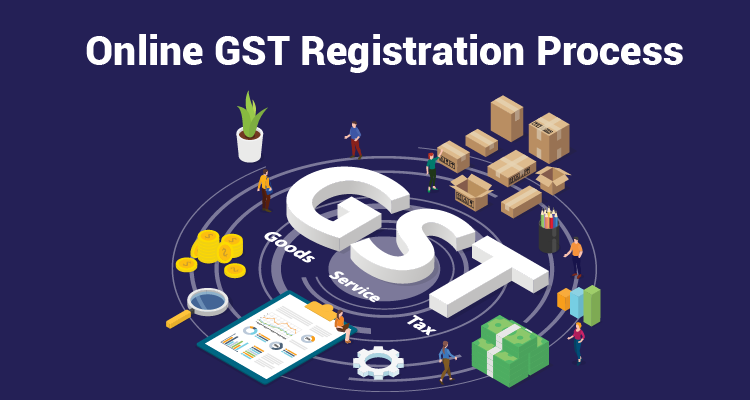Singapore GST Registration: What You Need to Know Prior To Using
Singapore GST Registration: What You Need to Know Prior To Using
Blog Article
The Ultimate Guide to Streamlining the GST Registration Process and Needs for Small Company Owners

Understanding GST Basics
To comprehend the fundamentals of the Goods and Provider Tax (GST) system, small organization owners must initially comprehend its underlying ramifications and principles. Under the GST regimen, companies are required to collect and sign up tax on part of the government, ensuring openness and compliance.
One of the key principles of GST is input tax credit scores, which enables services to assert credit scores for taxes paid on their acquisitions. Comprehending these basic principles is important for little business proprietors to browse the intricacies of the GST system and make sure conformity with the law.
Qualification Standards for Enrollment
Having actually established a fundamental understanding of GST principles, tiny company proprietors should currently meet certain eligibility requirements to proceed with the enrollment process (Singapore GST Registration). Organizations that were registered under the previous tax regimen (VAT, service tax obligation, etc) are likewise mandated to sign up under GST. Agricultural services that just supply create out of key manufacturing are exempt from GST enrollment.
Records Required for GST Registration

Simplified Enrollment Process Steps
Following the collection and confirmation of the requisite records, the registration process for GST can be browsed with a series of simplified actions created to assist in effective compliance for small company proprietors. The very first step entails seeing the GST website and choosing the 'New Enrollment' choice. Subsequently, the candidate needs to fill out Component A of the GST REG-01 form with information such as PAN, mobile number, and e-mail address to obtain an OTP for confirmation. When the OTP is received and gone into, a Short-term Referral Number (TRN) is generated for more procedures. The following step requires loading out Part B of the form with essential service details, posting supporting records, and completing the verification procedure using DSC or EVC. Upon successful verification, an Application Recommendation Number (ARN) is provided, showing the completion of the GST enrollment process. By complying with these streamlined actions, small service owners can efficiently sign up for GST and ensure compliance with tax obligation regulations.
Tips for Ensuring Compliance
To preserve governing adherence and operational honesty, attentive oversight and aggressive actions are pivotal in guaranteeing conformity with GST requirements for little organization proprietors. Small company proprietors need to stay upgraded with GST guidelines, submitting target dates, and any changes in tax obligation prices to avoid charges and keep a good standing with tax authorities. One necessary pointer for conformity is to maintain exact and detailed documents of all transactions, consisting of costs, invoices, and linked here invoices connected to GST. Consistently integrating financial records with GST returns can aid in identifying and fixing any disparities without delay. Furthermore, conducting periodic interior audits or seeking specialist support can make sure that the company is complying with all GST guidelines appropriately. It is additionally important for little business proprietors to buy GST-compliant accounting software that can improve the tax obligation declaring process and reduce mistakes. Last but not least, attending GST understanding workshops or training programs can boost understanding and compliance with GST policies, eventually profiting business in the future.
Conclusion
Finally, local business proprietors must recognize the fundamentals of GST, fulfill the qualification standards, gather needed files, and comply with the simplified enrollment procedure steps to ensure compliance. By streamlining the GST enrollment navigate here process and needs, small company owners can avoid penalties and run their organizations smoothly within the lawful framework - Singapore GST Registration. It is important for small company proprietors to stay educated and certified with GST laws to keep an effective business procedure
Little organization owners seeking GST registration have to guarantee they gather and send the necessary records to complete the registration process effectively. The documents required for GST registration typically consist of proof of service registration or consolidation, PAN (Irreversible Account Number) card of the organization address, entity and identity proof of the promoters/partners/directors, photos, address evidence of the place of service, bank account statements or terminated cheques, and authorization kinds. Participating in GST recognition Click This Link workshops or training programs can improve understanding and conformity with GST policies, eventually benefiting the business in the lengthy run.
By streamlining the GST registration process and needs, small organization owners can avoid penalties and operate their companies efficiently within the lawful framework. It is vital for tiny business owners to remain compliant and informed with GST policies to preserve an effective organization operation.
Report this page